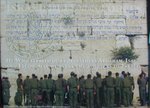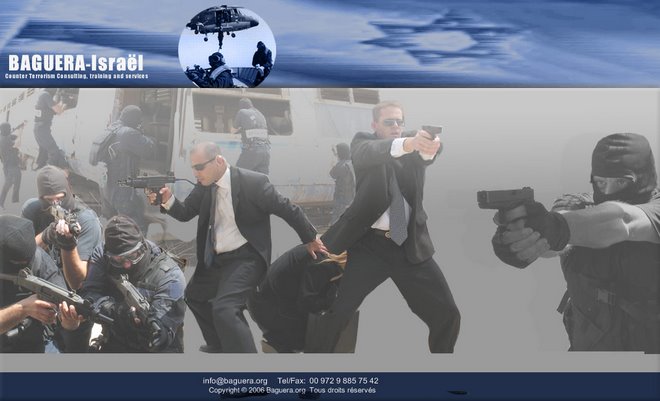In other words, the current route of the fence poses an inordinate risk to the Israeli population, which is counter to both Israeli and American national interests.
 |
In light of the recent missile attacks by the Lebanese-based terrorist organization Hizbullah, it is now very clear that the current positioning of the Judea-Samaria security fence is inadequate to protect Ben-Gurion Airport and Jerusalem, as well as the major settlement blocs around Ariel, Ma'aleh Adumim and Gush Etzion.
Israeli national security is being impaired by the construction of the fence a mere six miles away from Ben-Gurion Airport, when Stinger missiles have a range of six to eight miles. Most of the types of rockets and missiles fired by the Hizbullah terrorists in the recent war have a greater range than that.
If territorial control were to be relinquished in areas currently outside the fence northwest of Jerusalem, then Highway 443 to the capital would be surrounded by enemy territory. By giving the tomb of the prophet Samuel over to Palestinian Authority control, Highway 1 to Jerusalem - the main Jerusalem-Tel Aviv thoroughfare - would be vulnerable to rocket attacks from one mile away. Route 6, Israel's major north-south toll highway, would also be subject to such attacks. Israeli national security would be further eroded by leaving only small access roads to the three major settlement blocs in Judea and Samaria. These roads would become increasingly vulnerable to attack from PA-controlled hills overlooking them.
The security fence must be moved for better protection of Israeli air traffic, motorways and civilians.
If the fence is not moved, then US national security will be impaired, as well. The perception that the American State Department is encouraging an ally of the US to retreat in the face of terrorism encourages increased terrorist threats to other US allies, as well as to American troops on the front and to American diplomats in the field. Furthermore, US aid to Israel will require expensive augmentation in light of the dramatically increased threats to the Jewish State.
US national security would also be impaired when Islamic Jihad (backed by Iran), Hamas (backed by Syria, Iran and Saudi Arabia) and Al-Qaeda (funded by Saudi Arabians) would fill the void left by an Israeli retreat behind the security fence. In such a scenario, a key American ally would be left highly vulnerable to stepped-up pan-Islamic fundamentalist terrorist attacks. This threatens Israel's long-term economic status, and eventually even its existence, but it also erodes America's image and her ability to project strength.
In addition to undermining Israeli and American national security, the rise of pan-Islamic jihad organizations in Judea and Samaria would also call into question the survival of the Kingdom of Jordan. Those Islamist organization's state sponsors seek to undermine the Hashemite buffer state, as well.
Ken Abramowitz, Arutz Sheva
































 While doing IDF (Israel Defence Forces) reserve duty on a mountain overlooking the
While doing IDF (Israel Defence Forces) reserve duty on a mountain overlooking the 





No comments:
Post a Comment